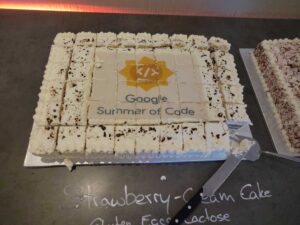In late October, as autumn draped Munich in its golds and greys, a curious gathering took place: the Google Mentor Summit, an annual conclave for those who guide the next generation of open-source contributors. It is, as one attendee put it, “the place to be” for mentors and organisers of the Google Summer of Code — or, for those who prefer the shorthand, GSoC.
For the uninitiated, GSoC is a rather ingenious invention. Since 2005, Google has paid thousands of developers — originally students, now anyone over 18 — to spend a summer writing free and open-source software. Organisations propose projects; participants build them; everyone, in theory, wins. As Wikipedia rather drily notes:
“The program is open to anyone aged 18 or over… Participants get paid to write software, with stipends adjusted to local purchasing power.”
Kiwix has been part of GSoC for more than a decade. Yet, astonishingly, this was the first time one of our senior mentors managed to attend the summit (it turns out that even open-source veterans struggle with calendars).
The summit, fittingly for a community that values collaboration over hierarchy, is what’s known as an “unconference” — a sort of organised chaos where the sche
dule is devised by the participants themselves. Instead of a strict timetable of keynote speeches, attendees propose their own sessions, scribbling topics on a whiteboard until it resembles something between a battle plan and a brainstorming session. And in case the lightning talks did not deliver the promised insights, there would always be cake.
OK great, but what did we learn?
The themes that emerged this year were telling:
-
Diversity, for instance. Everyone agrees it matters, yet the consensus was clear: without a plan and proper resources, good intentions simply preserve the status quo.
-
Artificial Intelligence was another hot topic. The community seems torn between excitement and apprehension. AI promises efficiency and insight — but also threatens to blur the line between learning and outsourcing, mentoring and automation. It was not a blanket “no”, but the burden in both poorly written proposals and PRs was felt by everyone.
-
And of course, there were the inevitable administrative discussions about the inner workings of GSoC — essential for the participating organisations, but, one suspects, somewhat less riveting for the rest of humanity.
But as anyone who has attended such events knows, the real value often hides in the hallways and coffee breaks. Conversations with other project leaders — those waging their own quiet battles to nurture contributors and keep codebases alive — revealed familiar struggles and a few fresh solutions.
By the time the final session closed, the verdict was unanimous: three days well spent. We have said it before and elsewhere: this is the best program currently available to the open source community.
